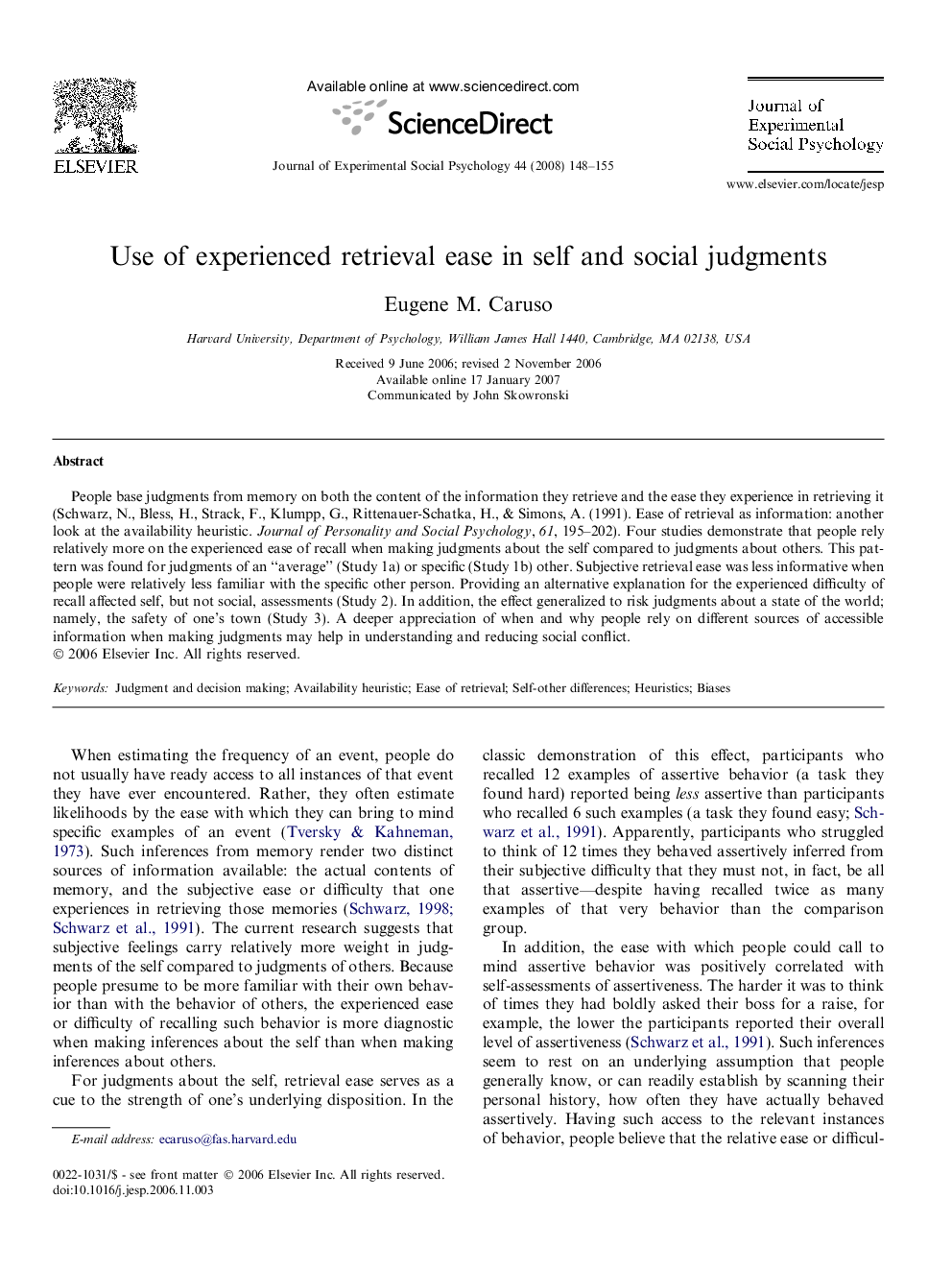| Article ID | Journal | Published Year | Pages | File Type |
|---|---|---|---|---|
| 948315 | Journal of Experimental Social Psychology | 2008 | 8 Pages |
People base judgments from memory on both the content of the information they retrieve and the ease they experience in retrieving it (Schwarz, N., Bless, H., Strack, F., Klumpp, G., Rittenauer-Schatka, H., & Simons, A. (1991). Ease of retrieval as information: another look at the availability heuristic. Journal of Personality and Social Psychology, 61, 195–202). Four studies demonstrate that people rely relatively more on the experienced ease of recall when making judgments about the self compared to judgments about others. This pattern was found for judgments of an “average” (Study 1a) or specific (Study 1b) other. Subjective retrieval ease was less informative when people were relatively less familiar with the specific other person. Providing an alternative explanation for the experienced difficulty of recall affected self, but not social, assessments (Study 2). In addition, the effect generalized to risk judgments about a state of the world; namely, the safety of one’s town (Study 3). A deeper appreciation of when and why people rely on different sources of accessible information when making judgments may help in understanding and reducing social conflict.
